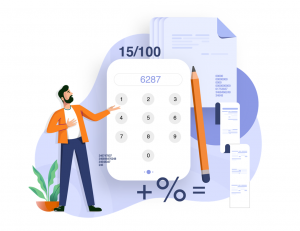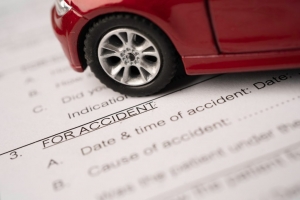Motorcycle accidents are more prone to result in intensive injury. In the state of Nevada, which mandates wearing a helmet at all times when riding a two-wheeler, there were 58 reported motorcycle accidents. This comes out to an average of at least one accident a week for an entire year. Needless to say, the threat of a motorcycle accident is never something that can be overlooked. Seeking compensation is also part of dealing with the aftermath of a motorcycle accident, and to ensure that you get your dues, you might want to consult with a Ladah motorcycle accident lawyer.
Getting involved in a motorcycle accident can be a devastating experience, both physically and emotionally. In addition to the immediate medical attention required, individuals may face significant financial burdens due to property damage, medical bills, and loss of income. Fortunately, those injured in motorcycle accidents may be entitled to compensation for their losses. This article explores the various types of compensation that can be claimed after a motorcycle accident and aims to provide valuable information for those seeking to navigate this often complex process.
1. Medical Expenses
The first category of compensation that can be claimed after a motorcycle accident is related to medical expenses. The cost of treating injuries sustained during the accident can add up quickly, from emergency room visits and hospital stays to surgeries, medications, rehabilitative therapy, and ongoing care. It is crucial to document all medical expenses thoroughly and keep receipts for any out-of-pocket payments. Such expenses typically form an essential part of a personal injury claim. Be sure to document all medicare bills and invoices.
2. Property Damage
Motorcycle accidents often result in significant damage to the vehicles involved. In such cases, victims should seek compensation for repairing or replacing their motorcycles as well as any other damaged belongings, including protective gear such as helmets and riding apparel. Collecting evidence, such as photographs of the damage, and submitting estimates from reputable repair shops will strengthen the claim for property damage reimbursement.
3. Lost Income
If the injuries sustained in a motorcycle accident prevent an individual from working temporarily or permanently, they may be entitled to receive compensation for lost income. This includes wages lost during recovery time or extended absence from work due to rehabilitation or ongoing treatment. Collecting pay stubs, tax records, and correspondence with employers will help establish the amount of income lost as a result of the accident.
4. Loss of Earning Capacity
In some cases where injuries sustained in a motorcycle accident are severe enough to permanently impair an individual's ability to work or limit their earning capacity, they may be entitled to claim compensation for future losses. Evaluating the loss of earning capacity typically requires expert opinions from vocational rehabilitation specialists and economic experts who can assess the impact of the injuries on a person's ability to earn a living.
5. Pain and Suffering
Compensation for pain and suffering refers to the physical and emotional distress experienced as a result of the motorcycle accident. These damages are more challenging to quantify as they do not have specific monetary values attached. Insurance companies and courts rely on various factors such as the severity of injuries, duration of recovery, degree of pain endured, psychological impact, and loss of quality of life when determining the amount awarded for pain and suffering.
6. Emotional Distress
Victims who experience significant emotional distress after a motorcycle accident may also be eligible for compensation. Emotionally traumatic experiences resulting from an accident can lead to anxiety, depression, post-traumatic stress disorder (PTSD), sleep disorders, or other mental health conditions. It is essential to seek professional help for any psychological symptoms experienced in order to document them thoroughly for the legal process.
7. Legal Fees
In many personal injury cases, legal representation is necessary to navigate insurance claims or pursue compensation through a lawsuit. Fortunately, in most instances, attorneys work on a contingency basis when handling personal injury claims related such as motorcycle accidents. This means that legal fees are dependent upon successfully obtaining compensation for the injured party. Consequently, victims can seek compensation for these legal fees as part of their claim.
Conclusion
Motorcycle accidents often bring significant physical, emotional, and financial consequences to the lives of victims. However, there are legal avenues available that allow those injured in such accidents to seek compensation for their losses. If you find yourself involved in a motorcycle accident, it is advisable to consult an experienced attorney who can guide you through the complex process of making a personal injury claim. In doing so, you may be eligible to claim various types of compensation, such as medical expenses, property damage, lost income and earning capacity, pain and suffering, emotional distress, and even the legal fees associated with pursuing your claim.






